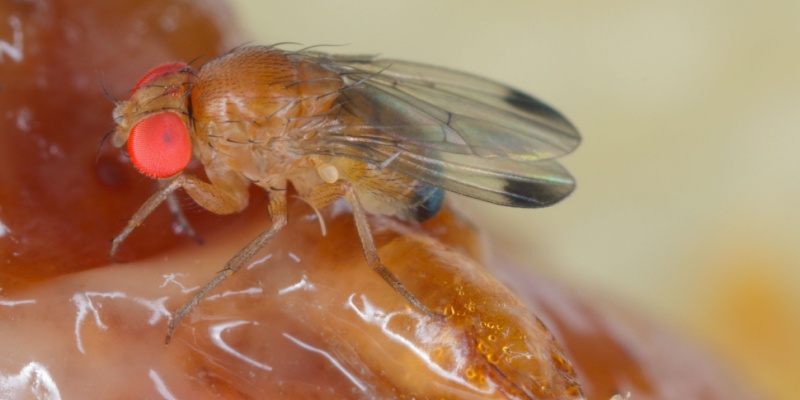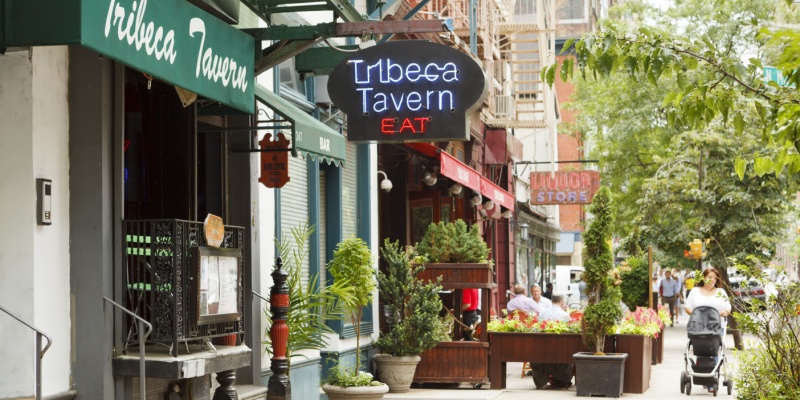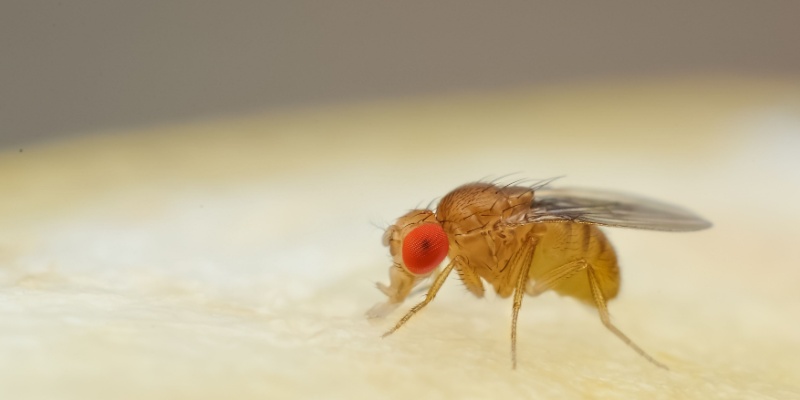Why Do I Have a Fruit Fly Problem in My Manhattan Restaurant?

If you’re dealing with a fruit fly problem in your Manhattan restaurant, you’re not alone. Fruit flies are a common nuisance in the foodservice industry, and understanding the underlying causes can help you address the issue effectively. Here’s why you might be experiencing a fruit fly problem and what you can do about it: Attractants in Your Restaurant Fruit flies are attracted to certain conditions and food sources commonly found in restaurants. Identifying these attractants is crucial for addressing the problem: Fruit flies are naturally drawn to ripe or decaying fruits and vegetables. Even small amounts of organic matter left on countertops or in storage areas can attract these pests. Spills from sugary drinks, syrups, or alcoholic beverages provide an excellent food source for fruit flies. Bar areas, soda stations, and dessert preparation areas are often hotspots for activity. Drains that are not regularly cleaned can accumulate organic material, providing a breeding ground for fruit flies. Kitchens, bars, and dishwashing areas are particularly susceptible. Trash bins that are not sealed or emptied regularly can attract fruit flies. Any organic waste left exposed is a potential attractant. Breeding Conditions Fruit flies thrive in environments where they can easily find food and moisture. Here are some conditions that facilitate breeding: 1. Moisture and Humidity High humidity levels and standing water provide ideal conditions for fruit fly breeding. Ensure that all areas of your restaurant are well-ventilated and dry. 2. Uncovered Produce Leaving produce uncovered on counters or in storage areas can attract fruit flies and provide them with a place to breed. 3. Neglected Cleaning Inadequate cleaning routines allow for the buildup of organic matter and moisture, both of which are attractive to fruit flies. Steps to Eliminate Fruit Flies If you’re dealing with a fruit fly problem, taking immediate action is essential. Here are steps you can take to eliminate fruit flies from your restaurant: 1. Remove Attractants Immediately remove any ripe or decaying produce, clean up spills, and ensure all food is stored in sealed containers. This helps eliminate the primary food sources for fruit flies. 2. Clean Drains Use a drain cleaner or a mixture of vinegar and baking soda to clean and clear drains of organic buildup. Regularly clean sinks and dishwashing areas to prevent fruit flies from breeding. 3. Manage Waste Properly Ensure all trash bins are sealed and emptied regularly. Use trash liners and wash bins frequently to eliminate odors and residues. 4. Implement Traps Use commercial fruit fly traps to capture existing flies and reduce the population. Vinegar traps or sticky traps can be effective tools for monitoring and controlling infestations. Professional Assistance For persistent fruit fly problems, professional pest control services can provide the expertise and tools necessary for effective elimination: Professionals can implement IPM strategies that focus on long-term prevention and control of fruit flies and other pests. This is a comprehensive and long-term approach focused on getting rid of any active infestations and preventing them from returning. Pest control specialists can create a custom treatment plan that addresses the specific needs and challenges of your restaurant. There is no one-size-fits-all pest treatment plan for Manhattan restaurants because each one is unique. The right pest control provider will develop a plan based on unique needs of your restaurant. Ongoing monitoring by professionals helps detect early signs of infestation and allows for prompt action to prevent outbreaks. This step is the key to stopping future infestations before they start. A fruit fly problem in your Manhattan restaurant can be frustrating, but understanding the attractants and breeding conditions can help you address the issue effectively. By removing food sources, maintaining rigorous cleaning routines, managing waste properly, and considering professional pest control services, you can eliminate fruit flies and maintain a clean and inviting environment for your customers. Taking these proactive steps will help ensure the success and reputation of your establishment in the competitive Manhattan restaurant scene.
Protect Your New York Restaurant from a Fruit Fly Infestation

Fruit flies can quickly become a significant problem for New York restaurants, impacting both operations and customer satisfaction. These pests are attracted to ripe or decaying organic matter, making restaurants particularly vulnerable to infestations. Here’s how to protect your New York restaurant from fruit fly infestations and ensure a clean and welcoming environment for your patrons: Understanding the Fruit Fly Threat Fruit flies are small but persistent pests that reproduce rapidly, making them difficult to control once an infestation takes hold. They are attracted to the sugars found in fruits, vegetables, and other organic materials. Restaurants provide an ideal environment for fruit flies due to the abundance of food sources and moisture. Understanding the nature of the threat is the first step in implementing effective prevention strategies. Identifying Common Breeding Grounds To prevent fruit fly infestations, it’s essential to identify and address common breeding grounds within your restaurant: 1. Produce Areas Overripe or rotting fruits and vegetables are primary attractants for fruit flies. Ensure that all produce is fresh and stored properly. 2. Trash Bins Improperly managed trash provides food and breeding grounds for fruit flies. Use sealed trash bins and dispose of waste regularly to minimize attraction. 3. Drains and Sinks Organic matter can accumulate in drains, providing a perfect environment for fruit fly breeding. Regular cleaning and maintenance are essential to prevent infestations. 4. Beverage Stations Areas where sugary drinks are prepared or served can attract fruit flies. Keep these areas clean and free of spills and residues. Effective Prevention Strategies Preventing fruit fly infestations requires a comprehensive approach that addresses all potential entry points and breeding sites. Here are some effective strategies: Store all fruits and vegetables in cool, well-ventilated areas. Use airtight containers to minimize exposure to air and moisture, reducing the attraction for fruit flies. Maintain a strict cleaning schedule for all areas of the restaurant, including kitchens, dining areas, and bathrooms. Pay special attention to drains, sinks, and garbage areas, using appropriate cleaning solutions to eliminate organic buildup. Implement an effective waste management system that includes sealed trash bins and regular disposal. Consider using trash liners and washing bins frequently to eliminate odors and residues that attract fruit flies. Conduct regular inspections of your restaurant to identify early signs of fruit fly activity. Use traps or monitoring devices to detect infestations early and take immediate action to address the problem. Implementing Professional Pest Control For comprehensive protection against fruit flies, consider working with a professional pest control service. Professionals can provide specialized services tailored to your specific needs: Pest control specialists can tailor their approach to address the specific needs and challenges of your restaurant, ensuring comprehensive protection against fruit flies and other pests. Many pest control companies offer IPM solutions that focus on prevention, monitoring, and control to keep fruit fly populations under control. Regular monitoring and treatment by professionals help ensure that your restaurant remains fruit fly-free, providing peace of mind and allowing you to focus on running your business. Protecting your New York restaurant from fruit fly infestations requires a proactive approach that includes proper storage, regular cleaning, effective waste management, and professional pest control services. By understanding the threat posed by fruit flies and implementing comprehensive prevention strategies, restaurant owners can maintain a clean and inviting environment for their customers, ensuring a positive dining experience and safeguarding their establishment’s reputation.
Why is Proper Drain Maintenance So Important for New York Restaurant Owners?

Proper drain maintenance is a critical aspect of running a successful restaurant in New York. Not only does it prevent plumbing issues and ensure smooth operations, but it also plays a vital role in pest control. Here’s why maintaining your restaurant’s drains is so important and how it can protect your establishment from pests like fruit flies: Preventing Pest Infestations Drains are often overlooked as potential breeding grounds for pests, but they can harbor significant threats, particularly from fruit flies and other insects. The organic matter that builds up in drains provides an ideal environment for pests to thrive. Here’s why proper drain maintenance is essential: 1. Eliminating Breeding Sites Fruit flies are attracted to the organic matter that accumulates in drains. Regular cleaning removes this buildup, eliminating potential breeding sites for these pests. 2. Preventing Odors Organic buildup in drains can lead to foul odors, which can attract other pests like rodents and cockroaches. Keeping drains clean helps maintain a fresh and sanitary environment. 3. Reducing Health Risks Pests that breed in drains can carry bacteria and pathogens that pose health risks to customers and staff. Proper drain maintenance reduces the risk of contamination and helps maintain compliance with health codes. Ensuring Efficient Operations Clogged or slow drains can disrupt kitchen operations, leading to delays and inefficiencies. Proper drain maintenance ensures that your restaurant runs smoothly: Regular cleaning prevents blockages that can lead to costly plumbing repairs and downtime. Ensuring free-flowing drains keeps your kitchen operations running efficiently. Drains that back up can damage kitchen equipment and appliances. By maintaining clean drains, you protect your investment and reduce the risk of equipment failure. Clean drains contribute to a sanitary work environment, which is essential for food safety and customer satisfaction. Implementing a Drain Maintenance Program To ensure effective drain maintenance, restaurant owners should implement a regular cleaning and inspection program. Here are some steps to consider: 1. Regular Cleaning Use enzyme-based cleaners or a mixture of vinegar and baking soda to clean drains regularly. These solutions help break down organic matter and prevent buildup. 2. Professional Inspections Schedule regular inspections by a professional plumber to identify potential issues and ensure that drains are functioning properly. 3. Routine Flushing Regularly flush drains with hot water to remove grease and debris. This simple step can prevent clogs and keep drains clear. 4. Staff Training Train staff to recognize signs of drain issues and emphasize the importance of proper disposal of food waste. Educate them on the use of strainers and traps to prevent food particles from entering drains. The Role of Professional Pest Control While proper drain maintenance is crucial, it may not be sufficient to prevent all pest problems. Partnering with a professional pest control service can provide additional protection. Routine professional services for your drains can prevent a long list of expensive and time-consuming issues. The pros at Systematic Pest Elimination can help you deal with a current drain issue and get you set up on a program that prevents future issues. Proper drain maintenance is essential for New York restaurant owners to prevent pest infestations, ensure efficient operations, and maintain a sanitary environment. By implementing a regular cleaning and inspection program, training staff, and partnering with professional pest control services, restaurant owners can protect their establishments from pests like fruit flies and ensure a safe and inviting dining experience for their customers.
How Do I Get Rid of a Fruit Fly Problem in My NYC Restaurant?

Dealing with a fruit fly infestation in your NYC restaurant can be challenging, but with the right approach, you can effectively eliminate these pests and prevent future issues. Here’s a step-by-step guide to getting rid of fruit flies in your restaurant: Identify the Source The first step in eliminating a fruit fly problem is identifying the source of the infestation. Fruit flies are attracted to ripe or decaying organic matter, and finding the source is crucial for effective control. Inspect all fruits and vegetables in your restaurant for signs of over-ripeness or decay. Remove any spoiled items immediately. Drains can accumulate organic debris, which attracts fruit flies. Use a flashlight to inspect drains for signs of breeding. Ensure that all garbage bins are sealed and regularly emptied. Look for leaks or spills that might attract flies. Look for spills or residues in bars and soda stations that might be attracting fruit flies. Clean and Sanitize Thorough cleaning and sanitation are essential for eliminating fruit flies and preventing their return. 1. Drains and Sinks Use a drain cleaner or a mixture of vinegar and baking soda to clean drains and remove organic buildup. A stiff brush can help scrub away residue. 2. Floors and Surfaces Clean floors, countertops, and other surfaces daily with a disinfectant. Pay special attention to areas where food is prepared or stored. 3. Garbage Management Use trash liners and ensure bins are tightly sealed. Regularly wash garbage bins to remove any odors or residues. 4. Storage Areas Store food in sealed containers and keep storage areas organized. Regularly inspect and clean storage spaces to prevent buildup of organic material. Use Traps and Baits Traps and baits can help reduce the fruit fly population while you address the source of the problem. Fill a shallow dish with apple cider vinegar and a few drops of dish soap. The vinegar attracts fruit flies, and the soap breaks the surface tension, causing them to drown. Use commercially available fruit fly traps, which often contain attractants and adhesives to capture flies effectively. Consider using bait stations with attractants that lure fruit flies and trap them inside. Implement Preventative Measures Preventing future infestations requires ongoing diligence and preventative measures. 1. Regular Inspections Conduct regular inspections of your restaurant to identify potential sources of fruit flies. Use monitoring devices to detect early signs of infestation. 2. Proper Food Handling Train staff to handle food properly and maintain cleanliness. Emphasize the importance of storing food correctly and disposing of waste promptly. 3. Drain Maintenance Implement a routine cleaning schedule for all drains and sinks to prevent organic buildup. Consider using enzyme-based cleaners to break down organic matter effectively. 4. Pest Control Services Partner with a professional pest control company to implement an integrated pest management (IPM) plan tailored to your restaurant’s needs. Professional Pest Control Solutions For severe or persistent fruit fly problems, professional pest control services can provide the expertise and tools necessary for effective elimination. Professionals can implement IPM strategies that focus on the long-term prevention and control of fruit flies and other pests. Pest control specialists can create a custom treatment plan that addresses the specific needs and challenges of your restaurant. Regular monitoring and maintenance by professionals help ensure that your restaurant remains fruit fly-free. Getting rid of a fruit fly problem in your NYC restaurant requires a comprehensive approach that includes identifying the source, thorough cleaning and sanitation, and implementing preventative measures. By following these steps and partnering with professional pest control services when needed, you can effectively eliminate fruit flies and maintain a clean and inviting environment for your customers.
Fruit Fly Concerns for Manhattan Restaurant Owners

Fruit flies are a common nuisance for restaurant owners, particularly in urban areas like Manhattan. These tiny insects can quickly become a significant problem if not addressed promptly. For restaurant owners, understanding the risks associated with fruit flies and implementing effective prevention strategies is crucial for maintaining a clean and sanitary environment for customers. The Impact of Fruit Flies on Restaurants Fruit flies, though small, can have a big impact on your restaurant’s reputation and operations. They are attracted to ripe fruits, vegetables, and other organic materials, making restaurants an ideal breeding ground. Here’s why fruit flies should be a concern for Manhattan restaurant owners: 1. Health Violations Fruit flies can contaminate food and surfaces with bacteria, potentially leading to health code violations. Health inspectors often look for signs of pest infestations, and fruit flies can raise red flags during inspections. 2. Customer Experience The presence of fruit flies can negatively impact the dining experience for your customers. Seeing these pests in a restaurant can lead to negative reviews and damage your reputation. 3. Rapid Reproduction Fruit flies reproduce quickly, with a single female capable of laying hundreds of eggs. An infestation can develop rapidly if not addressed, leading to more significant problems. Common Sources of Fruit Flies in Restaurants Understanding where fruit flies are likely to originate is key to preventing infestations. Here are common sources that restaurant owners should be aware of: Ripe or rotting fruits and vegetables are prime targets for fruit flies. Ensure proper storage and regular inspections to remove any spoiled produce. Improperly managed trash and compost can attract fruit flies. Keep bins sealed and emptied regularly to minimize attraction. Fruit flies are often drawn to the organic matter that builds up in drains and sinks. Regular cleaning and maintenance are essential to prevent them from breeding in these areas. Areas where sugary liquids are used or spilled can attract fruit flies. This includes bars, soda fountains, and coffee stations. Preventative Measures for Restaurant Owners Preventing a fruit fly infestation requires diligence and proactive measures. Here are some steps Manhattan restaurant owners can take: Store fruits and vegetables in cool, well-ventilated areas. Use airtight containers to minimize exposure to the environment. Maintain a rigorous cleaning schedule for all areas of the restaurant, including kitchens, dining areas, and bathrooms. Pay special attention to drains, sinks, and garbage areas. Use sealed trash bins and ensure regular waste disposal. Consider using trash liners and washing bins frequently to eliminate odors and residues that attract fruit flies. Regularly inspect your restaurant for signs of fruit fly activity. Use traps or monitoring devices to detect infestations early and take action immediately. Professional Pest Control Solutions For restaurant owners facing persistent fruit fly problems, professional pest control services can provide effective solutions. Pest control specialists can identify the source of the infestation, recommend appropriate treatments, and implement preventative measures tailored to your establishment. Many pest control companies offer IPM solutions that focus on prevention, monitoring, and control to keep fruit fly populations under control. Professionals can tailor their approach to address the specific needs of your restaurant, ensuring comprehensive protection against fruit flies and other pests. Fruit flies are a common concern for Manhattan restaurant owners, but with proper management and preventative measures, they can be effectively controlled. By understanding the risks, identifying common sources, and implementing proactive strategies, restaurant owners can protect their establishments from fruit fly infestations. In cases of persistent issues, partnering with a professional pest control service like Systematic Pest Elimination can provide peace of mind and ensure a clean and sanitary environment for your customers.
